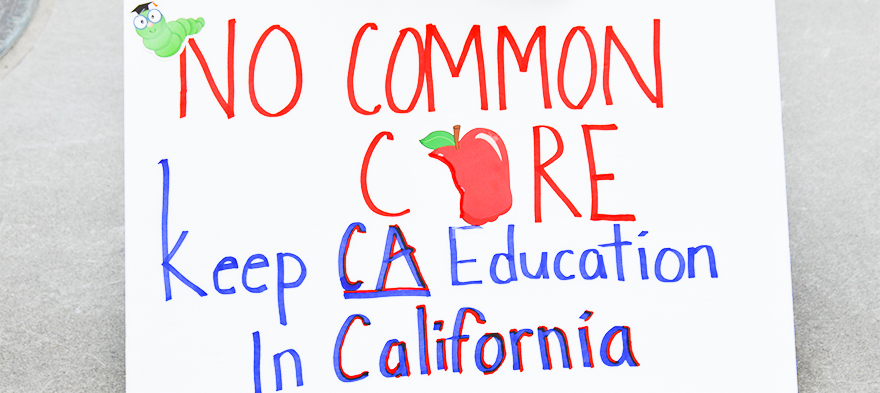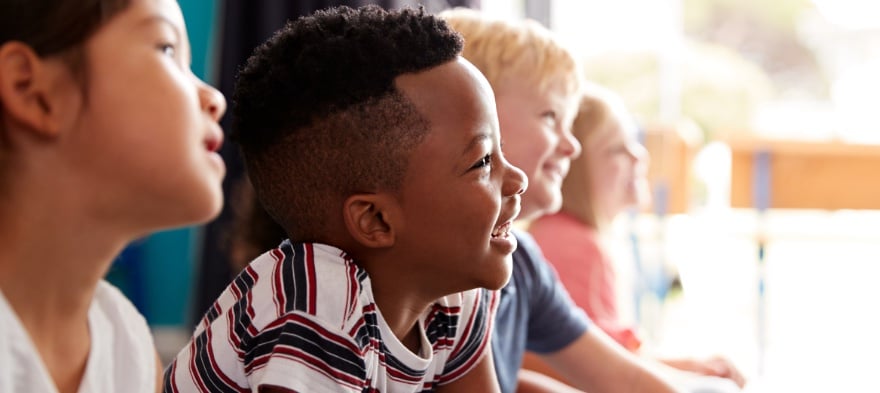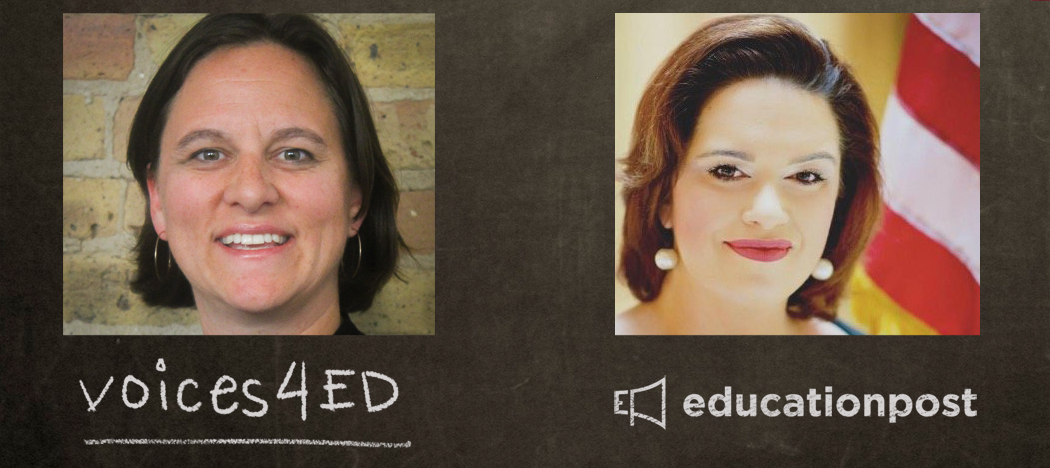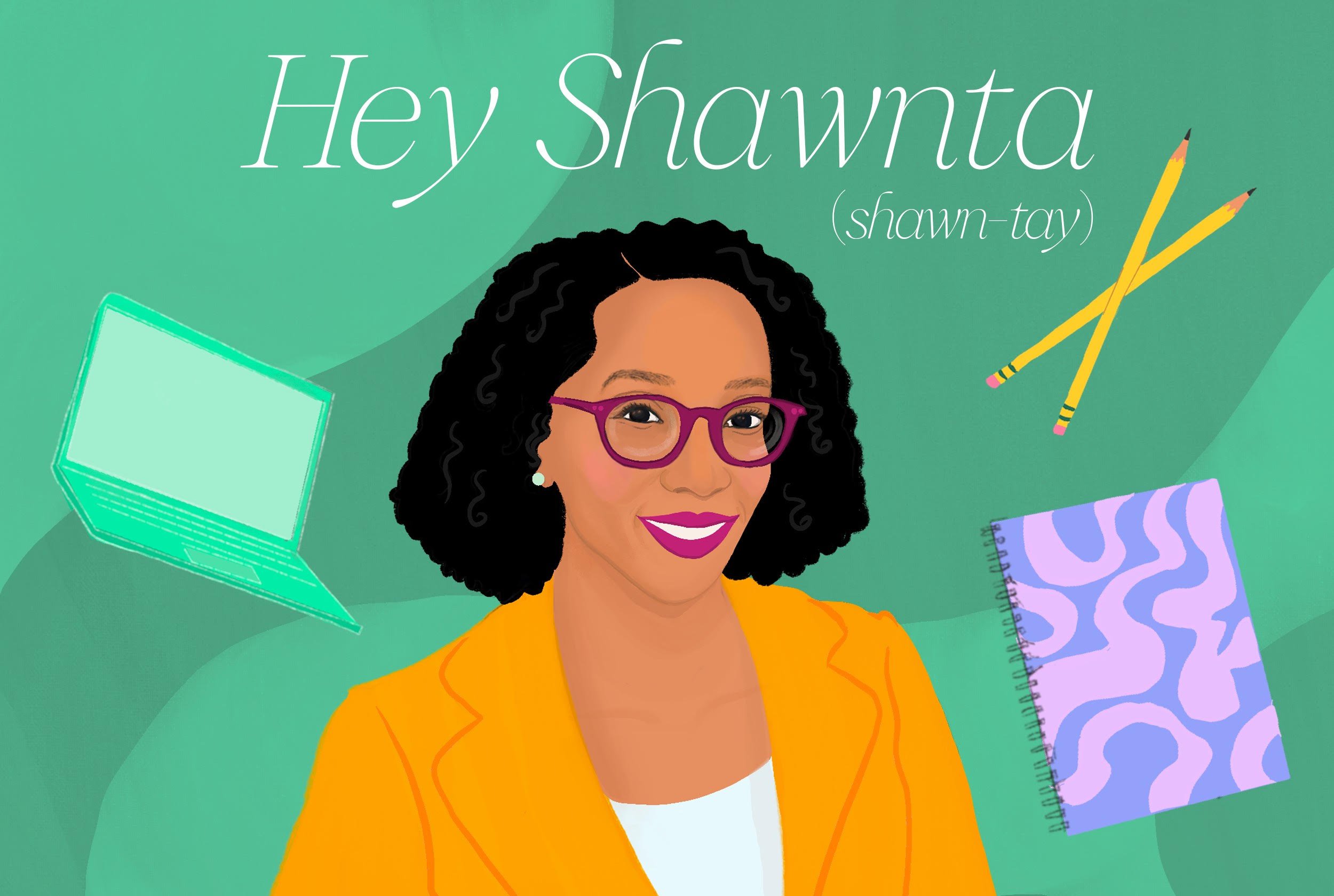
Turns Out Common Core Isn't About Politics, It's About Social Justice
BY Victoria Clayton
June 30, 2016
If you selected 20 parent friends from across the country with diverse backgrounds, children of all ages and diverse educational levels and careers and asked them what—if anything—they knew about Common Core State Standards (CCSS), what would they say? That’s exactly what I did this week. My interest was piqued not only because I’ve noticed—who hasn’t?—that Common Core continues to be a political issue this election season, but also because of a strange encounter I had in line at a Staples store a while back. A father with two children waited in the line just ahead of me and my two kids. Right away, I saw he was a hands-on, attentive dad. And he seemed to be extremely in-the-know. If fact, he even felt compelled to suggest that I shop elsewhere for more affordable garbage bags. Then he segued into a discussion about school issues, pointedly mentioning Common Core. The way he screwed up his face in disgust at the mention of Common Core, made me ask what he didn’t like. That’s when he had nothing coherent to say. The wait didn’t last long enough to delve deeper into the issue with him, but it did make me more curious about Common Core. The truth was, like a lot of parents, I didn’t know enough about Common Core. In fact, I have to admit that for too long [pullquote position=“left"]I kept erroneously referring to Common Core as a curriculum. It most definitely is not a curriculum, but all those C's get confusing. Just in case you’re like me, let’s go over the basics.
The ABC's of Common Core
Common Core is a set of evidence-based standards for English language arts and math only, which 42 states, the District of Columbia, four territories and the Department of Defense voluntarily adopted. The standards establish what kids need to learn in each grade, but they don’t dictate what teachers use to teach (that’s curriculum). For example, Common Core doesn’t dictate which exact books a student will read. The standards include texts that are appropriately complex as examples for what a district might use, but districts make their own decisions. In mathematics, the standards are an attempt to make the work more coherent, more focused and more in line with countries that have repeatedly excelled in math. And, while the Common Core State Standards doesn’t cover science and social studies, the Next Generation Science Standards have been adopted by many states and attempts to establish a common understanding of what students should know about science at each grade level. What I find most fascinating about Common Core, though, is the potential impact it could have on our society long term. In 1999, the journalist Nicholas Lemann wrote The Big Test: The Secret History of the American Meritocracy. A tremendous amount has changed in standardized testing since that book’s publication, but it’s still worth the read just to learn the very complicated history behind testing in general. One of Lemann’s recommendations that stuck with me is that he called for—even 17 years ago!—common standards in high school. Lemann said that common standards would prepare students equally for college and, more key to what he focused on in his work, it would close the gap between more and less selective colleges. It makes complete sense. It means that no matter where you live or your socioeconomic status, if you’re attending a public school you will be taught according to a set of standards. A high school diploma should mean roughly the same thing whether you’re in Mississippi or Massachusetts. Standards such as Common Core State Standards are a social justice issue and they are one hope toward ensuring more diversity and success at college and far beyond. So Common Core is not just good for my kids, it’s good for all U.S. kids. It’s good for everyone in the country. I wish I’d have known enough about it that day at Staples so I could’ve defended it.Parents Know Best
What heartened me recently, though, is that when I asked random friends across the country what they knew about Common Core, I got so many well thought-out answers. More parents than I expected knew quite a bit and even offered anecdotes about how it’s impacted their kids. A few mentioned that they were aware that it’s a social justice issue. Many echoed my concern not just for their kids, but for the nation’s kids and for our country. Several also said that they viewed Common Core as a definite step in the right direction, though they noticed some implementation hiccups. One friend said she felt her fourth grader had to “re-learn” some concepts because under Common Core there were different expectations. Another friend, who works part-time as a substitute teacher, said that overall she supported CCSS but she didn’t like the decreased emphasis on spelling tests. She said under CCSS there’s an assumption that everyone uses spell-check these days. When I had a conversation with one of my son’s teachers, she pointed out that Common Core State Standards are great but she feared some parents conflated CCSS with the Smarter Balanced testing, which had a rough rollout at some points. When I asked parents about their experience with standardized testing after CCSS, though, most parents said that, like me, they didn’t notice a huge difference in their child’s performance from before CCSS to after the standards changed. What I was most encouraged about was that there were no knee-jerk responses. Several people said they wished politicians would stop making it a political issue. Nobody was like that seemingly-aware, articulate and wise dad in line at Staples. That is, nobody rejected Common Core while knowing nothing about it. It got me thinking about the trash bags. I did a little price comparison, and it turns out the dad in line was right about that. I’ll give him that. And now I also have the perfect receptacle for his opinions on Common Core.
An original version of this post appeared on Head in the Sand as Is your Common Core opposition driven by selfishness or cluelessness?.

Victoria Clayton is a parent, writer and part-time college instructor in Southern California. Her work has appeared in The Los Angeles Times, Los Angeles Times magazine, Self, Redbook, Prevention and elsewhere. She’s the former Growing Up Healthy columnist for MSNBC.com and the coauthor of "Fearless Pregnancy: Wisdom and Reassurance from a Doctor, a Midwife and a Mom." Victoria is a member of the ...




